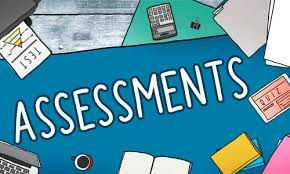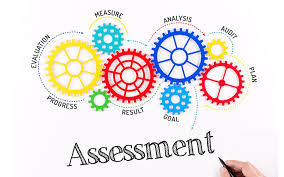Soft Skills Assessment Tools That Actually Deliver
- enriquehowarth
- May 6
- 4 min read
In today’s dynamic workplace, soft skills are no longer a “nice to have” — they’re a necessity. Communication, teamwork, adaptability, and emotional intelligence often determine how well employees work together, especially in remote and cross-functional environments. That’s why soft skills assessment tools have become essential for hiring managers and HR teams. But with so many tools on the market, which ones truly deliver on their promise?

Here’s a closer look at what makes a soft skills assessment tool effective, and some top options that actually work.
Why Soft Skills Matter More Than Ever
Hard skills might land a job, but soft skills keep it. The ability to collaborate, think critically, manage time, or respond under pressure often distinguishes a high-performing team from a dysfunctional one. Companies that invest in measuring and nurturing these skills are better positioned to build strong, resilient workforces.
That’s where assessment tools come in. These tools help identify whether a candidate or employee has the interpersonal and behavioral traits needed to succeed in a given role or team environment.
What Makes a Great Soft Skills Assessment Tool?
An effective tool goes beyond generic personality quizzes. It should:
Measure multiple soft skill categories like leadership, communication, empathy, and conflict resolution.
Provide clear, actionable insights that help hiring managers make better decisions.
Be customizable to match specific roles or company values.
Offer objective data, reducing bias in hiring or performance reviews.
Top Soft Skills Assessment Tools That Deliver
1. Skillrobo
Skillrobo offers a wide range of customizable soft skills assessments tailored for different job roles. With features like real-time reporting and AI-based analysis, it provides accurate, bias-free insights into candidate behavior and mindset.
2. TestGorilla
This platform allows recruiters to combine soft skill tests with technical assessments. It offers tests for communication, problem-solving, and emotional intelligence, making it a great all-round solution.In today’s dynamic workplace, soft skills are no longer a “nice to have” — they’re a necessity. Communication, teamwork, adaptability, and emotional intelligence often determine how well employees work together, especially in remote and cross-functional environments. That’s why soft skills assessment tools have become essential for hiring managers and HR teams. But with so many tools on the market, which ones truly deliver on their promise?
Here’s a closer look at what makes a soft skills assessment tool effective, and some top options that actually work.
Why Soft Skills Matter More Than Ever
Hard skills might land a job, but soft skills keep it. The ability to collaborate, think critically, manage time, or respond under pressure often distinguishes a high-performing team from a dysfunctional one. Companies that invest in measuring and nurturing these skills are better positioned to build strong, resilient workforces.
That’s where assessment tools come in. These tools help identify whether a candidate or employee has the interpersonal and behavioral traits needed to succeed in a given role or team environment.
What Makes a Great Soft Skills Assessment Tool?
An effective tool goes beyond generic personality quizzes. It should:
Measure multiple soft skill categories like leadership, communication, empathy, and conflict resolution.
Provide clear, actionable insights that help hiring managers make better decisions.
Be customizable to match specific roles or company values.
Offer objective data, reducing bias in hiring or performance reviews.
Top Soft Skills Assessment Tools That Deliver
1. Skillrobo
Skillrobo offers a wide range of customizable soft skills assessments tailored for different job roles. With features like real-time reporting and AI-based analysis, it provides accurate, bias-free insights into candidate behavior and mindset.
2. TestGorilla
This platform allows recruiters to combine soft skill tests with technical assessments. It offers tests for communication, problem-solving, and emotional intelligence, making it a great all-round solution.
3. ThriveMap
ThriveMap creates realistic work simulations that assess candidates' soft skills in context. Instead of standard quizzes, candidates are placed in situational tests that reflect actual job scenarios.
4. Pymetrics
Pymetrics uses neuroscience-based games to assess traits like risk-taking, attention, and learning style. It's ideal for companies looking to match candidates to roles using data-driven, behavior-based insights.
How to Choose the Right Tool
The best tool depends on your hiring goals and company culture. For example, a startup might value adaptability and communication, while a healthcare company might prioritize empathy and stress management. Always look for tools that can be tailored to your unique needs, provide detailed reports, and integrate with your current hiring or HR systems.
Final Thoughts
Not all soft skills assessment tools are created equal. The best ones deliver real insights that help companies make smarter hiring decisions, boost team performance, and reduce turnover. As the workplace continues to evolve, relying on data to assess soft skills isn't just smart—it’s essential.
3. ThriveMap
ThriveMap creates realistic work simulations that assess candidates' soft skills in context. Instead of standard quizzes, candidates are placed in situational tests that reflect actual job scenarios.
4. Pymetrics
Pymetrics uses neuroscience-based games to assess traits like risk-taking, attention, and learning style. It's ideal for companies looking to match candidates to roles using data-driven, behavior-based insights.
How to Choose the Right Tool
The best tool depends on your hiring goals and company culture. For example, a startup might value adaptability and communication, while a healthcare company might prioritize empathy and stress management. Always look for tools that can be tailored to your unique needs, provide detailed reports, and integrate with your current hiring or HR systems.
Final Thoughts
Not all soft skills assessment tools are created equal. The best ones deliver real insights that help companies make smarter hiring decisions, boost team performance, and reduce turnover. As the workplace continues to evolve, relying on data to assess soft skills isn't just smart—it’s essential.



Comments